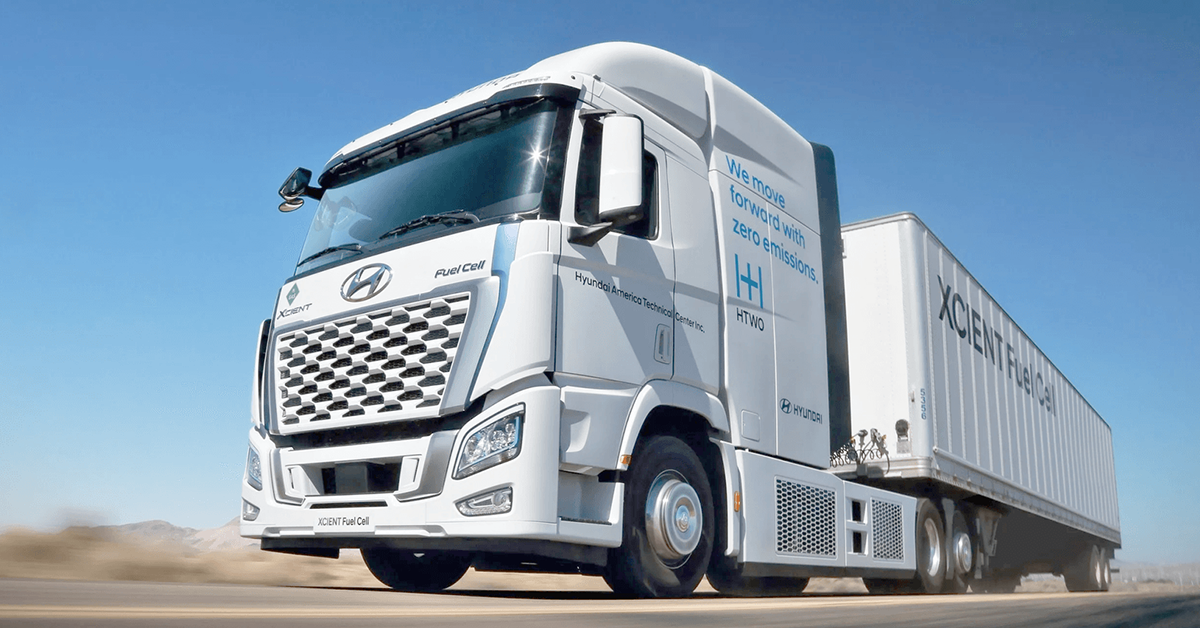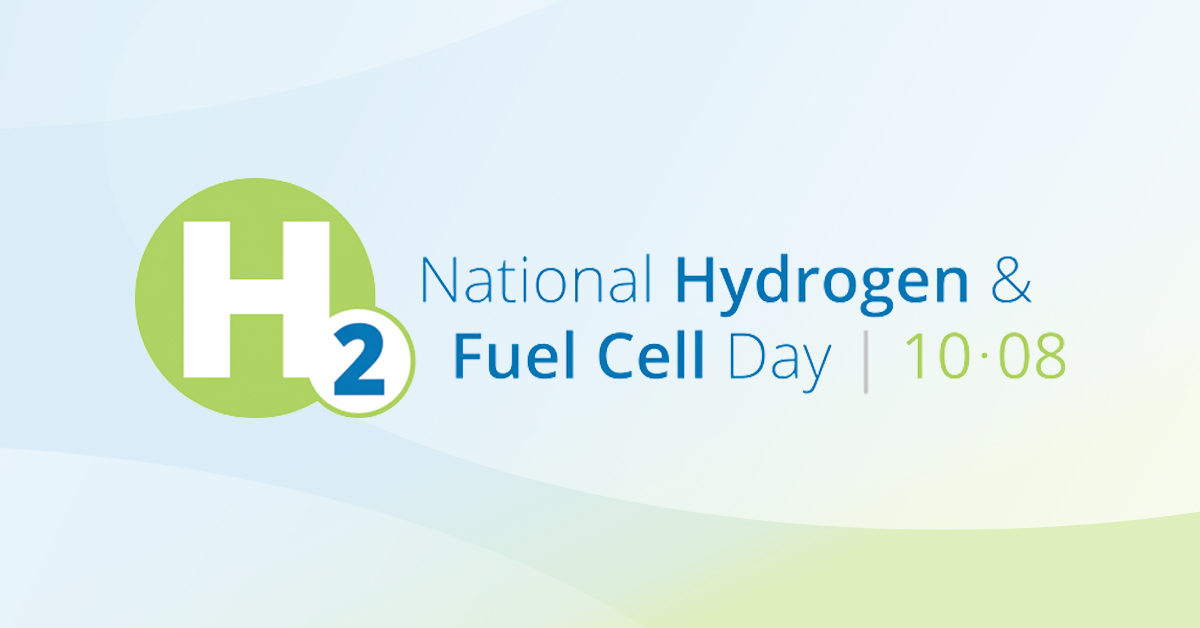
Marine Ports
Vehicles and vessels at coastal and inland ports across the United States rely predominately on diesel. Associated activities emit large amounts of greenhouse gases (GHGs), criteria pollutants, and toxic air contaminants, all of which significantly impact nearby communities.
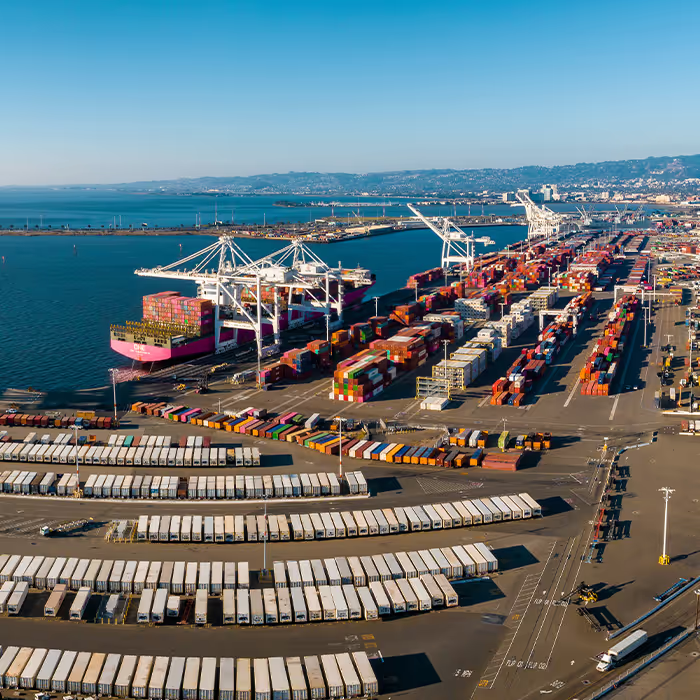
Marine ports present unique obstacles to decarbonization. Operational and technical challenges shape the approach for electrifying vehicles such as container handlers, rubber-tired gantry cranes, drayage trucks, forklifts, and yard tractors.
CTE believes that demonstration projects, and funding for them, serve to bridge what’s commonly referred to as “the valley of death” for new port and marine technologies. Because these markets' technology readiness levels (TRLs) are behind other sectors, demonstration programs prove these these emerging technologies in real-world applications.
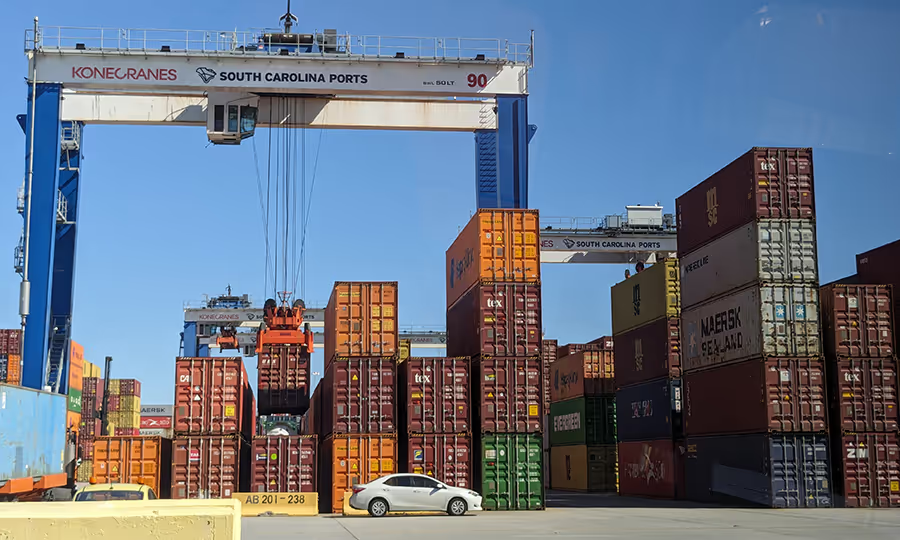
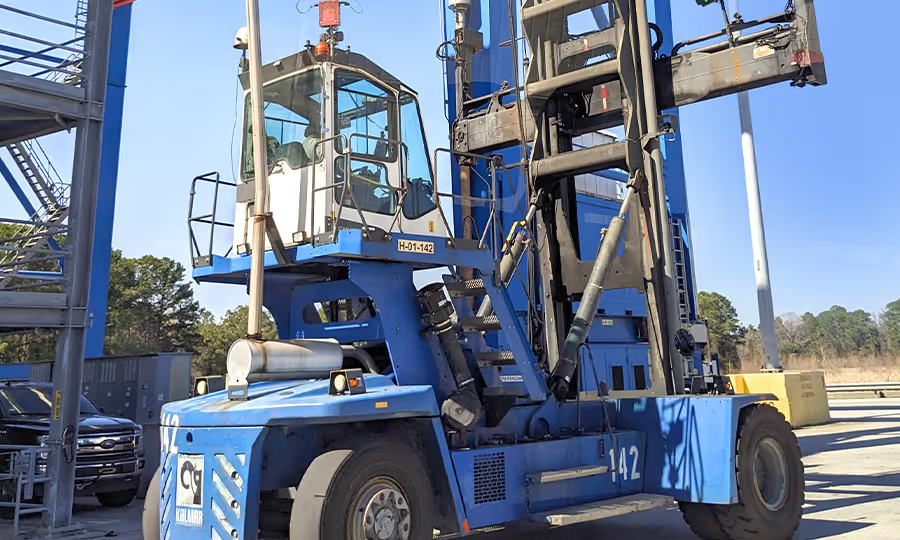
Smart Deployment Services
CTE helps the fleet owner develop a project management plan to guide their zero-emission vehicle project. CTE collaborates with the fleet owner to define project objectives and scope, identify resources, and develop a detailed project schedule and implementation plan. The project plan is then presented at the project kickoff meeting held with key team members and stakeholders.
CTE’s modeling suite uses our proprietary engineering and analysis tools to develop an independent operational analysis that helps the fleet owner match ZEV technologies to service requirements.
Vehicle & Route Modeling – CTE gathers data on routes, technical specifications of the vehicle and charging or refueling equipment, and operational assumptions. This route and vehicle information is used to model the vehicles’ duty cycles, simulating vehicle performance on selected routes. The process also ensures that adequate power and energy storage specifications are met and inform fueling and charging strategies.
Fueling Infrastructure Modeling – For battery electric vehicle deployments, CTE defines charging scenarios to model electricity consumption and assess charging equipment requirements. Modeling results for electricity inform infrastructure procurement and operational decisions. For fuel cell electric vehicle deployments, CTE will determine daily hydrogen consumption and station throughput requirements given the fleet owner’s refueling window. CTE will also estimate a station scale-up plan as a starting point for fueling station design discussions.
Fuel Cost Modeling – CTE examines electric utility rate structures to estimate the annual cost of energy to charge battery electric vehicles. CTE works with the fleet owner and local utility providers to determine rate schedules that would be the most advantageous for supporting battery electric vehicle deployments. For fuel cell electric vehicle deployments, CTE will identify likely sources of hydrogen supply, evaluate hydrogen supply reliability, and estimate the cost of hydrogen.
Based on the modeling outputs, CTE helps fleet owners develop vehicle and infrastructure technical specifications to meet service requirements. The specifications can then be used as part of a competitive procurement or to develop a contract with a named vendor. CTE also provides advisory services throughout the design and build process.
If the fleet owner chooses to select a vehicle, charging, hydrogen refueling station, or facility modification vendor through a competitive procurement, CTE supports the fleet owner in the procurement process, including the preparation of Requests for Proposals (RFP), technical evaluation of proposals, vendor demonstrations, site visits to vendor facilities, vendor negotiations, and contracting.
Before the delivered vehicles enter service, CTE runs a series of tests to validate the expected levels of vehicle performance. If there are any discrepancies between the modeled and the tested performance, CTE will work with the fleet owner to analyze these discrepancies and reevaluate operational decisions before the fleet owner places the vehicles into service.
CTE collects operational data to generate a series of Key Performance Indicators (KPIs) to measure benefits and ensure the vehicles perform as expected. KPIs can be used to compare ZEV performance against the fleet owner’s current vehicle fleet by measuring and reporting mileage, fuel consumption and costs, maintenance costs, battery degradation, and efficiency and range under varying conditions. This information is used to assess energy savings, cost savings, and emissions reductions to measure performance against expectations and goals and to validate the operating model. Continuous KPI monitoring establishes an understanding of the technology that can be applied to future ZEV procurements, deployments, and long-range fleet management planning.
CTE employs a project management methodology specifically designed for zero-emission vehicle deployments and augmented by established project management, administration, reporting, and controls processes. CTE provides technical advisory services throughout the project to ensure that fleet owner staff understand the differences in technology and the best practices for deploying and operating ZEVs. CTE’s Smart Deployment Methodology is designed to address all aspects of a successful implementation including planning, requirements analysis, specifications, workforce development requirements, operator and maintenance training, testing and validation, and performance evaluation.
From identifying the right opportunity to managing post-award requirements, CTE provides full-service grant support tailored to your needs. Our team combines policy insight with deep technical expertise to develop competitive applications that align with funding priorities. We de-risk projects through data-driven strategies for technology selection, deployment modeling, procurement planning, and validation—positioning your project for long-term success.
Transition Planning Services
We assess the viability of transitioning to zero-emission vehicles (ZEVs) for a variety of fleet types, including transit buses, commercial trucks, port equipment, airport ground transportation and support vehicles, and more. This includes evaluating the energy requirements, vehicle performance, and emissions impacts of different ZEV technologies.
We analyze the types of ZEVs and “fueling” strategies that would best meet existing service requirements. This includes considering factors such as vehicle range, operational costs, and environmental impact.
We define a plan and related costs to upgrade utility service and add charging solutions or hydrogen fueling stations to support the transition to ZEVs.
We assess costs and benefits of various ZEV transition strategies. This includes considering factors such as vehicle purchase and operating costs, infrastructure costs, and fuel savings.
We define a comprehensive series of projects to meet a fleet operator’s transition goals. This includes identifying funding sources, developing implementation plans, and tracking progress.
Marine Ports Project Spotlight
Fuel Cell Electric Top Loader
A grant awarded to the Center for Transportation and the Environment (CTE) by the California Air Resources Board (CARB) in 2018 has supported the development of a first-of-its kind fuel cell electric top loader — a breakthrough zero-emission solution for port operations. This innovation offers rapid refueling with hydrogen, taking only 15 minutes to provide 8-10 hours of continuous operation, completely emission-free. The Hyster® top-pick container handler runs on two Nuvera E-45 fuel cell engines and is being demonstrated by Fenix Marine Services at the Port of Los Angeles (POLA) in Long Beach, California. Wireless charging for the top loader is provided by WAVE, and mobile hydrogen fueling provided by Air Products. CTE's leadership and a collaborative effort make this technology a potential industry game-changer, aligning with California's ambitious air quality and climate goals.
Beyond the immediate environmental impact, with estimated annual savings of 127 tons of CO2 and 0.357 tons of Criteria Pollution, this project underscores the societal benefits of transitioning to zero-emission equipment. CTE, serving as the project lead, emphasizes the importance of demonstration projects in navigating the challenging transition from early-stage technologies to market-ready solutions. Recognizing the invaluable lessons learned in terms of technology refinement and soft skills associated with market adoption, CTE advocates for public support to drive further advancements, address challenges, and optimize resources for the greater good.


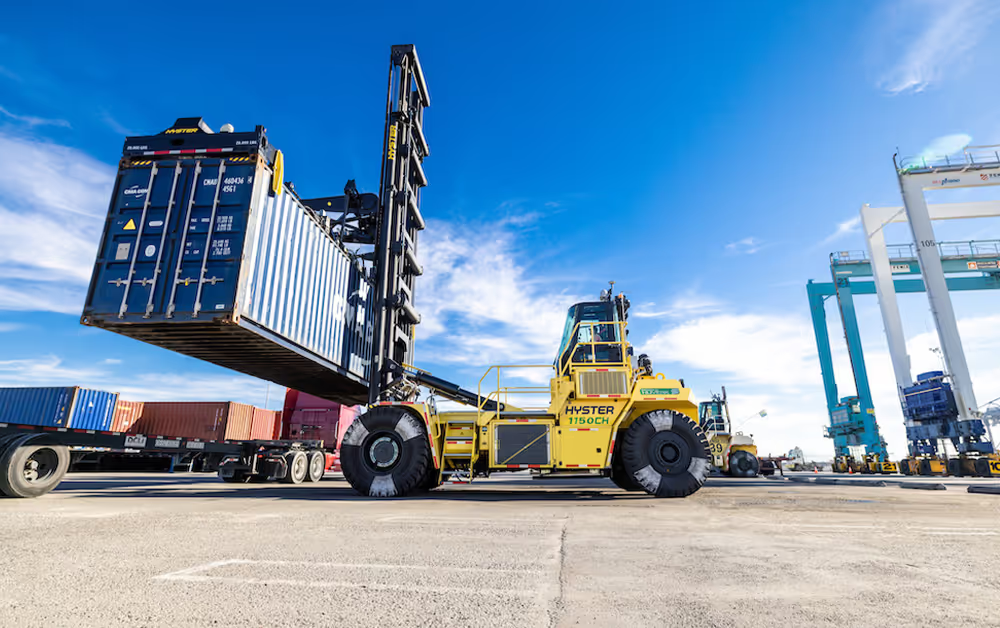
Related Marine Ports News
Ready to Get Started?
CTE is here to help successfully plan, deploy, and monitor your fleet. We want to hear from you!


